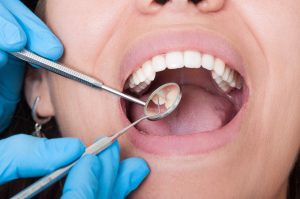
Things to Keep in Mind While Selecting a Dental Hygiene School
Education choices are typically predicated on two considerations: How long do you want to spend in school, and how much do you want to spend? Dental hygiene programs are no exception to this rule. Different dental hygiene programs, though, vary in what subjects and skills they teach. Obviously, you’ll want to pick the dental hygiene school that teaches you what you want to know.
All dental hygiene programs cover basic sciences like anatomy, physiology, biology, and pharmacology. Some programs, however, offer specialty courses in subjects like dental materials, dental pharmacology and pain relief. Similarly, while all programs teach basic hygienist skills like removing plaque and tartar from teeth, only a handful may offer skills labs in anesthesia and X-ray procedures. Do your research beforehand, and choose carefully among the dental hygiene schools that offers what you want. SEE: Dental Instruments Names and Functions
Dental Hygiene Program Length & Cost
There are three educational tracks to becoming a dental hygienist. You can get an associate degree at either a community college or a technical college; you’ll be able to finish your degree in 20 to 30 months, and you’ll spend between $5,310 – $58,970 doing so. An increasing number of four-year colleges and universities are also offering dental hygiene training; if you’re a state resident and you go to a state-funded school, your tuition may be as low as $24,600 while training through a private university may cost you as much as $107,850. Finally, if you’d like to do research or teach other aspiring dental hygienists, you may want to get a master’s degree. A master’s degree will take between one and two years to complete, and you will end up spending between $32,060 and $99,020.
| Type of Program | Length | Cost |
| Associate Degree | 20 – 30 Months | $5,310 – $58,970 |
| Bachelor’s Degree | 4 – years | $24,600 – $107,850 |
| Master’s Degree | Between 1 and 2 years | $32,060 – $99,020 |
BEST DENTAL HYGIENE SCHOOLS IN TEXAS
#1 Texas A&M (College Station, TX)
In 1954, Texas A&M University opened the fully equipped Caruth School of Dental Hygiene. The undergraduate Bachelor of Science program typically takes 60 semester hours, or two years of study, to complete. Classes may include Oral Radiology, Applied Dental Materials, Pediatric Dentistry, Perspectives in Dental Hygiene, and Public and Community Health. Upon completion of the degree, students may sit for the National Board Dental Hygiene Examination and clinical examination for licensure, or they may continue on to Master’s studies in Dental Hygiene, Public Health, Education, or Health Administration also available at Texas A&M. There are more than 450 dental and graduate students enrolled in the Caruth School. Though most students attend full-time, and are encouraged to do so, a modified program is available for those who cannot.
#2 Texas Woman’s University Denton, TX
Texas Woman’s University offers 2 Dental Hygiene/hygienist Degree programs. It’s a large public university in a midsized city. In 2015, 46 students graduated in the study area of Dental Hygiene/hygienist with students earning 46 Bachelor’s degrees.
#3 Midwestern State University Wichita Falls, TX
Midwestern State University offers 1 Dental Hygiene/hygienist Degree program. It’s a medium sized public university in a midsized city. In 2015, 18 students graduated in the study area of Dental Hygiene/hygienist with students earning 18 Bachelor’s degrees.
#4 Concorde Career College-Dallas Dallas, TX
Concorde Career College-Dallas offers 1 Dental Hygiene/hygienist Degree program. It’s a small private college in a large city. In 2015, 40 students graduated in the study area of Dental Hygiene/hygienist with students earning 40 Associate’s degrees.
#5 Amarillo College Amarillo, TX
Amarillo College offers 1 Dental Hygiene/hygienist Degree program. It’s a large public college in a mid sized city. In 2015, 26 students graduated in the study area of Dental Hygiene/hygienist with students earning 26 Associate’s degrees.
BEST DENTAL HYGIENE SCHOOLS IN CALIFORNIA
#1 University of Southern California, Los Angeles
For almost 80 years, the University of Southern California’s School of Dentistry has been offering high-quality dental education. It boasts of an acclaimed faculty comprising of experts, authors, and editors who have made a valuable contribution to the field of dental science. Moreover, as a dental hygiene student, being part of a large dental school, you enjoy many opportunities to learn from students and faculty from other dental specialties.
USC is one of the few dental schools in the nation to offer a Bachelor’s and Master’s in dental hygiene.
Bachelor of Science in Dental Hygiene
With this bachelor’s degree, you will be well-equipped to kickstart your career as an entry-level dental hygienist. You must complete 76 credits in dental hygiene and 12 in general education courses. The well-rounded coursework takes five trimesters to complete and includes extensive clinical training, to help you gain real-world experience.
Master of Science in Dental Hygiene
If you are looking at advancing your dental hygiene education then you can consider this program that can be completed in 16 months of full-time study. If you are working, you can also opt for a part-time schedule. The coursework will help you gain expertise in this dental field through class work, case studies and oral presentations. Upon completion of your training you can also pursue a career in research and education.
#2 University of the Pacific, San Francisco
University of the Pacific’s San Francisco campus provides an enriching learning environment, with its state-of-the-art facility, an array of dental programs, a dental clinic on-campus and a teaching approach that encourages student-faculty and community interaction. Moreover, its accessible location makes it convenient for students to commute without much hassle.
This three-year bachelor’s program at UOP prepares students with a broad curriculum that incorporates components of liberal arts in the first half of the program, and after that moving to the dental hygiene coursework from the second half onwards. This helps students to develop problem-solving skills, constantly adapt to changes in the dental field and be an efficient member of a dental team. As the college is highly selective in its admission policy, it is recommended that you complete your high school with at least a GPA of 2.7 and ensure you take biology, chemistry, and math.
#3 West Coast University – Orange County, Anaheim
West Coast University provides umpteen learning opportunities to dental hygiene students, thus ensuring professional and personal growth. An advanced simulation lab, an opportunity to serve a diverse population at its free dental clinic and a host of career assistance services prepare students for this challenging yet rewarding allied dental career with much aplomb.
You can opt for this accelerated dental hygiene course in California and finish your bachelor’s in dental Hygiene in just 34 months, sooner than most bachelors programs offered at other colleges. The program incorporates a broad curriculum that includes courses in general education and dental hygiene. While general education courses can be taken online, dental hygiene courses are mostly offered on-campus. By completing the coursework, you will acquire the knowledge and skills to fulfill job duties in a wide array of positions such as a clinician, dental hygiene faculty, researcher, administration and management.
#4. San Joaquin Valley College, Ontario & Visalia
For aspiring dental hygiene students in California, San Joaquin Valley College offers two fully equipped campuses, to choose from. Each one comes with its own dental clinic, small sized classrooms and a reputation of excellent licensure exam pass rates. To become a valuable member of a dental team within a short duration, the college offers an associate degree that can be completed in 16 months. You will learn vital technical skills such as the use of charting software, intra-oral cameras that help show the interior of a patient’s mouth, x-ray techniques, placing of dental and sealants, fluoride and performing advanced scaling and root planning methods by using various instruments. The curriculum also includes extensive clinical sessions each term, starting with 8 hours per week during the first two terms and thereon, 12 to 16 hours per week in term three and four. The program is rigorous in nature, and it is highly recommended that you do not work, while being enrolled.
#5. Foothill College, Los Altos Hills
Foothill College has been training dental hygiene students since as long as 1964. It offers two dynamic bachelor’s programs to meet the academic needs of dental hygiene aspirants.
Entry-level Bachelor of Science Degree in Dental Hygiene: This program entails completing general education, science and social science courses in the first two years. After this, you are required to apply to the dental hygiene program, and once accepted you will complete 107 credits in core dental hygiene and upper division general education courses. This will take another two years of study, during which the curriculum includes courses such as dental radiography, oral anatomy, dental materials, periodontics, dental health education, and ethics and law applicable to dental practices.
AS to BS-DH Program: This is a bridge program for those who have already completed an Associate degree in Dental Hygiene and are looking at broadening their knowledge base and career avenues. To graduate you must complete eight courses, and all of them are offered online. This works well for a dental hygienist who is not willing to keep current work commitments on hold while earning his bachelor’s.
DENTAL HYGIENE SCHOOLS IN FLORIDA
#1 Miami Dade College, Miami
Miami Dade College is one of the leading dental hygiene schools in the state. It trains students to be job ready with the required skills and knowledge, by combining didactic and lab sessions, with extensive clinical learning at a fully-equipped dental clinic. The college offers an associate degree in dental hygiene that can be completed in about two years. The program is offered at the college’s Medical Campus and requires completion of 88 credits, including general education and dental hygiene courses. It starts in August each year and classes are offered full-time, during the day. General education courses that are also offered online preferably should be completed before starting the dental hygiene coursework. The dental hygiene curriculum includes courses in dental anatomy, preventive dentistry, dental radiology, periodontology, community dental health, dental materials, and dental practice management and leadership.
#2 Santa Fe College, Gainesville
Santa Fe College’s rich learning environment is complemented by a dedicated faculty, individualized attention and hands-on learning experiences at the college’s dental clinic. Additionally, clinical rotations at the University of Florida’s College of Dentistry and dental offices in Alachua further hone professional skills and knowledge. The college offers an associate degree for dental hygiene aspirants. To earn your degree, you will complete a rigorous curriculum that requires 35 to 37 class hours each week. You will be trained to work as a dental hygienist in a variety of work settings such as dental clinics, educational institutions, research laboratories, and public health. The coursework is broad and includes anatomic, biological, dental science and clinical courses. Upon completion of this program, you will be eligible to take the administration of local anesthesia certification exam along with the national and state licensure exams. SEE: How Are Dental Instruments Sterilized
#3 Eastern Florida State College, Cocoa
Eastern Florida State College is a dental hygiene school in Florida that strives to give back to the community by providing an effective platform, where dental hygiene students learn and serve the community through annual public dental service events and a fully functional dental clinic. This dental hygiene program at EFSC is an associate degree that can be completed in two years of full-time study. The coursework is a blend of general education, science, and dental hygiene courses. The college recommends completing general education and science courses before starting the dental hygiene coursework. With only 12 students being selected each year, you can up your odds of admission, by completing the pre-requisite courses in nutrition, microbiology, anatomy, physiology and an introduction to healthcare with a minimum grade “C.”
#4 St Petersburg College, Clearwater
For more than 50 years, St Petersburg College has trained dental hygiene students to excel in this job position. Graduates are known to have performed exceedingly well on the state and national licensure exams. St Petersburg College offers an associate and bachelor’s in dental hygiene. While the associate allows even those without a dental background to enter, the bachelor’s requires you to be a licensed dental hygienist.
Dental Hygiene Associate in Science Degree: This two-year program serves as an academic pathway for an advanced degree in dental hygiene. The program is offered in a cohort format with sequential coursework. The 58 credits dental hygiene curriculum includes courses in oral histology, dental radiography, preventive dentistry, dental materials, dental pharmacology, community dental health, periodontics and clinical training. Additionally, if you qualify, you can even enjoy a clinical learning experience in Jamaica.
Dental Hygiene B.A.S. Degree: All the courses in this program are offered completely online. It expands on the knowledge you have gained in your associate and greatly widens career prospects in research, education, management, and sales. SEE: 30 Top Dental Equipment Companies in The World
#5 Broward College, Fort Lauderdale
Broward College facilitates quality dental hygiene education with its student-friendly services such as a Career Center, financial aid and scholarships that go hand in hand with a job ready curriculum. This dental hygiene course in FL is offered in a unique format where you complete one year of study in dental assisting, followed by another year in dental hygiene. Each year, in August approximately 16 students are admitted into the dental hygiene cohort. Dental Pharmacology, pain control, dental anesthesia, oral histology, and periodontology are some of the courses you will complete as part of your dental hygiene curriculum. The advantage this program offers is that after the completion of your first year in dental assisting you can apply for internships and give your career quite a boost. You have up to three years to enroll for the dental hygiene program after you complete your dental assisting education. Some students go on to work during this period and gain valuable work experience while also earning to pay for their second year of study in dental hygiene.
What is the Average Salary of a Dental Hygienist
On average, a dental hygienist’s salary is a little more than $100,000 a year. Benefits vary from employer to employer but generally include vacation time and some type of health care coverage. Composite Tray Set Up
| Type | Salary |
| Hourly | $48.48 |
| Monthly | $8,400 |
| Annual | $100,830 |
| (Source: U.S. Bureau of Labor Statistics) | |
Based on Years of Experience
| Years of Experience | Hourly | Monthly | Annual |
| Less than 1 year (Starting) | $34.92 | $6,050 | $72,630 |
| 1-4 years | $42.69 | $7,400 | $88,800 |
| 5-9 years | $49.28 | $8,540 | $102,510 |
| 10-19 years | $57.13 | $9,900 | $118,820 |
| 20 years or more | $62.17 | $10,780 | $129,310 |
| (Source: U.S. Bureau of Labor Statistics) | |||
Job Outlook
While the demand for dental hygienists is expected to grow by more than 16 percent by the year 2026, that growth rate is slightly lower than the growth rate in many other states.
| Employment | Employment Growth, 2016-26 | ||
| 2016 | 2026 | Number | Percent |
| 21,800 | 25,400 | 3,600 | 16.51% |
| (Source: careeronestop) | |||
Annual Job Openings
| New | Replacement | Annual Job Openings (New + Replacement) |
| 360 | 10,240 | 1,740 |
| (Source: careeronestop) | ||




